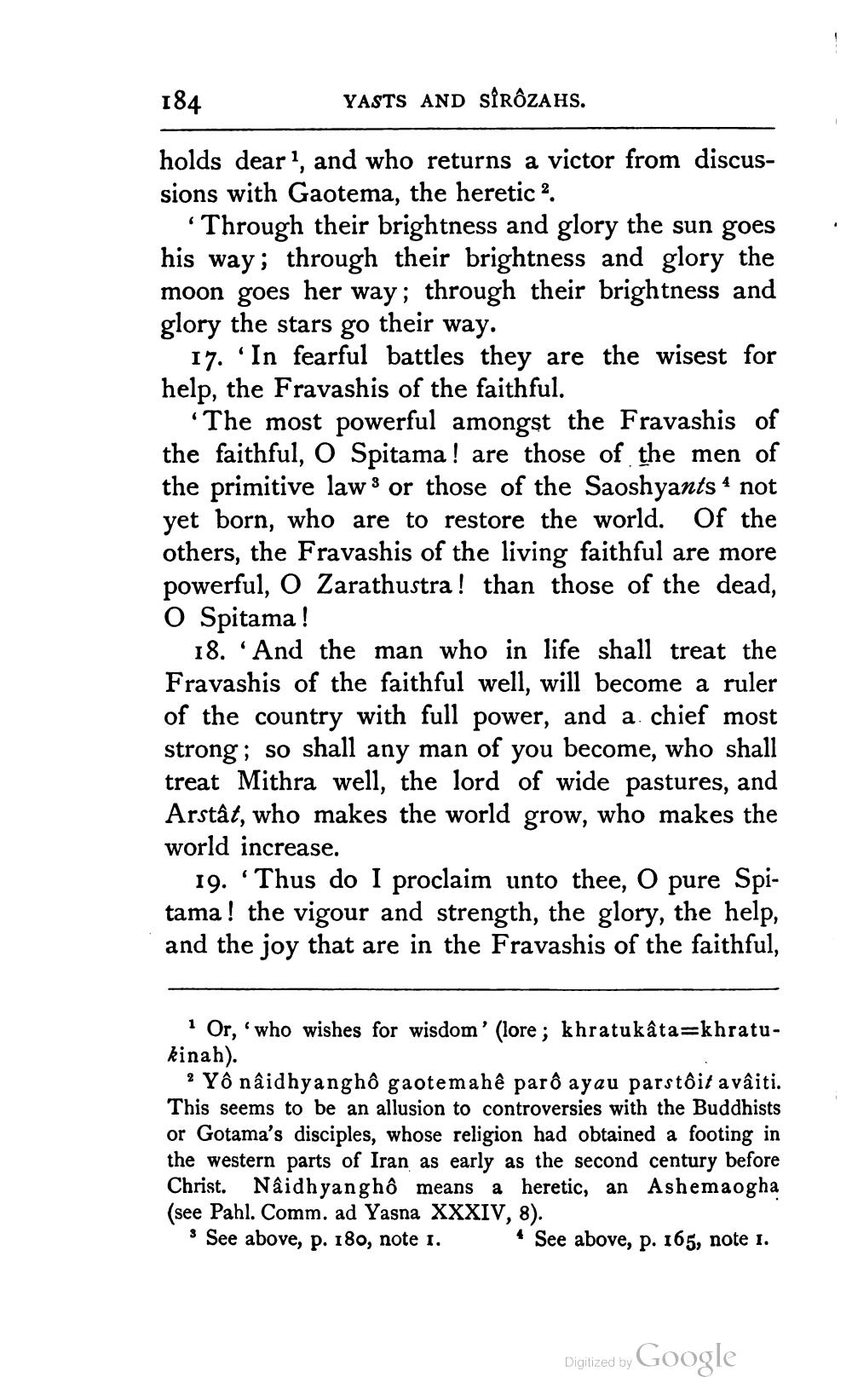________________
184
YASTS AND SÊRÔZAHS.
holds dear 1, and who returns a victor from discussions with Gaotema, the heretic 2.
Through their brightness and glory the sun goes his way; through their brightness and glory the moon goes her way; through their brightness and glory the stars go their way.
17. “In fearful battles they are the wisest for help, the Fravashis of the faithful.
The most powerful amongst the Fravashis of the faithful, O Spitama! are those of the men of the primitive laws or those of the Saoshyants 4 not yet born, who are to restore the world. Of the others, the Fravashis of the living faithful are more powerful, O Zarathustra! than those of the dead, O Spitama!
18. “And the man who in life shall treat the Fravashis of the faithful well, will become a ruler of the country with full power, and a. chief most strong; so shall any man of you become, who shall treat Mithra well, the lord of wide pastures, and Arstât, who makes the world grow, who makes the world increase.
19. 'Thus do I proclaim unto thee, O pure Spitama! the vigour and strength, the glory, the help, and the joy that are in the Fravashis of the faithful,
1 Or, who wishes for wisdom' (lore; khratukata=khratukinah).
? Yô nâidhyanghô gaotem ahê parô ayau parstôit avâiti. This seems to be an allusion to controversies with the Buddhists or Gotama's disciples, whose religion had obtained a footing in the western parts of Iran as early as the second century before Christ. Näidhyanghô means a heretic, an Ashemaogha (see Pahl. Comm. ad Yasna XXXIV, 8).
* See above, p. 180, note 1. See above, p. 165, note 1.
Digitized by Google




